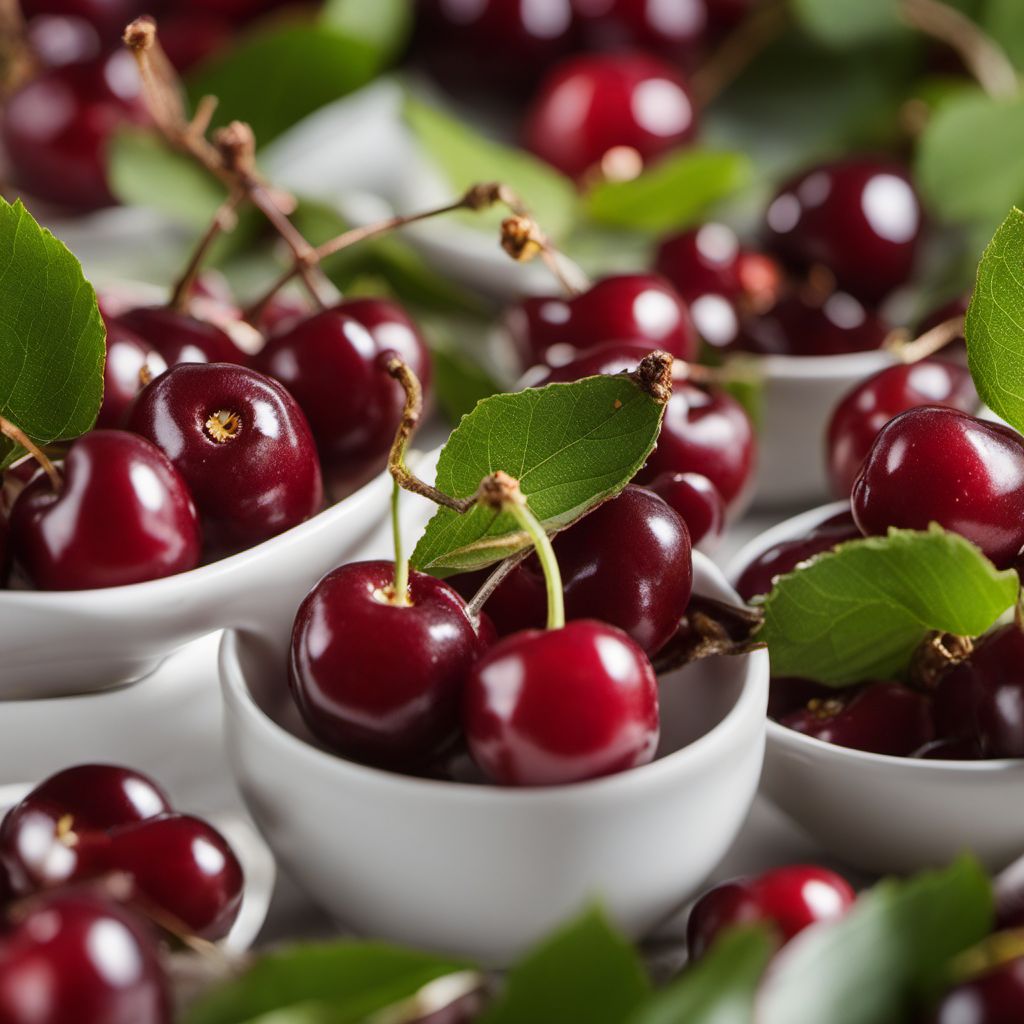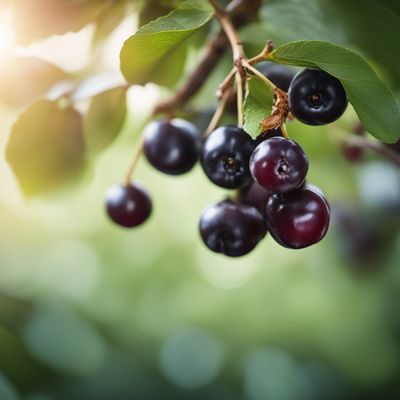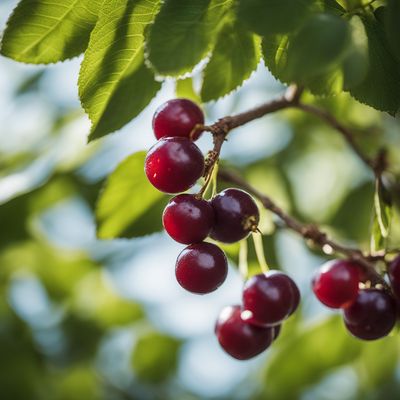
Ingredient
Cherries and similar-
The Juicy Gems
Cherries and similar fruits, such as sour cherries or black cherries, are small, round fruits with a glossy skin and a firm yet juicy texture. They come in various colors, including bright red, yellow, or even dark purple, and offer a delightful balance of sweetness and tartness.
Origins and history
Cherries have a long history, with evidence of their cultivation dating back thousands of years. They are believed to have originated in Asia and spread to Europe and North America over time. Cherries hold cultural significance in many regions, often associated with summer and harvest festivals.
Nutritional information
Cherries and similar fruits are a good source of vitamins A and C, as well as dietary fiber. They also contain antioxidants, which help protect the body against oxidative stress and inflammation. Additionally, cherries are known for their potential anti-inflammatory properties and may aid in sleep regulation.
Allergens
Some individuals may have allergies or sensitivities to cherries or similar fruits. It is important to be aware of any potential allergic reactions and avoid consumption if necessary.
How to select
When selecting cherries or similar fruits, look for those that are plump, firm, and free from blemishes or bruises. The stems should be green and intact, indicating freshness. Avoid cherries that are overly soft or have wrinkled skin, as they may be past their prime.
Storage recommendations
To prolong the freshness of cherries and similar fruits, store them in the refrigerator in a perforated plastic bag or airtight container. This helps maintain their moisture while allowing for proper air circulation. Avoid washing cherries until ready to use, as excess moisture can lead to spoilage.
How to produce
Cherries and similar fruits can be grown in home gardens or purchased from local farmers markets or supermarkets. They thrive in temperate climates and require well-drained soil and adequate sunlight. With proper care, amateur gardeners can enjoy a bountiful harvest of these juicy gems.
Preparation tips
Cherries and similar fruits can be enjoyed fresh as a snack, added to salads or desserts, or used in both sweet and savory dishes. They can be baked into pies, made into preserves or jams, or even used to flavor beverages or sauces.
Culinary uses
Cherries and similar fruits are widely used in various cuisines around the world. They are commonly incorporated into desserts, such as cherry pies, tarts, or ice creams. They also pair well with savory dishes, such as salads, sauces for meats, or even in marinades for grilled dishes.
Availability
Cherries and similar fruits are commonly available in regions with temperate climates, including North America, Europe, and parts of Asia. They are often harvested during the summer months, with peak availability in June and July.
More ingredients from this category

Black cherries
The Dark Delicacy

Chokecherries
The Bittersweet Berry

Capulins
The Exotic Cherry of Mexico

Cherries (sweet)
The Juicy Gems of Summer

Cornelian cherries
The Tangy Gems of the Fruit World: Cornelian Cherries

Nanking cherries
The Tangy Gems of Nanking

Sour cherries
Tart Delights: Exploring the World of Sour Cherries